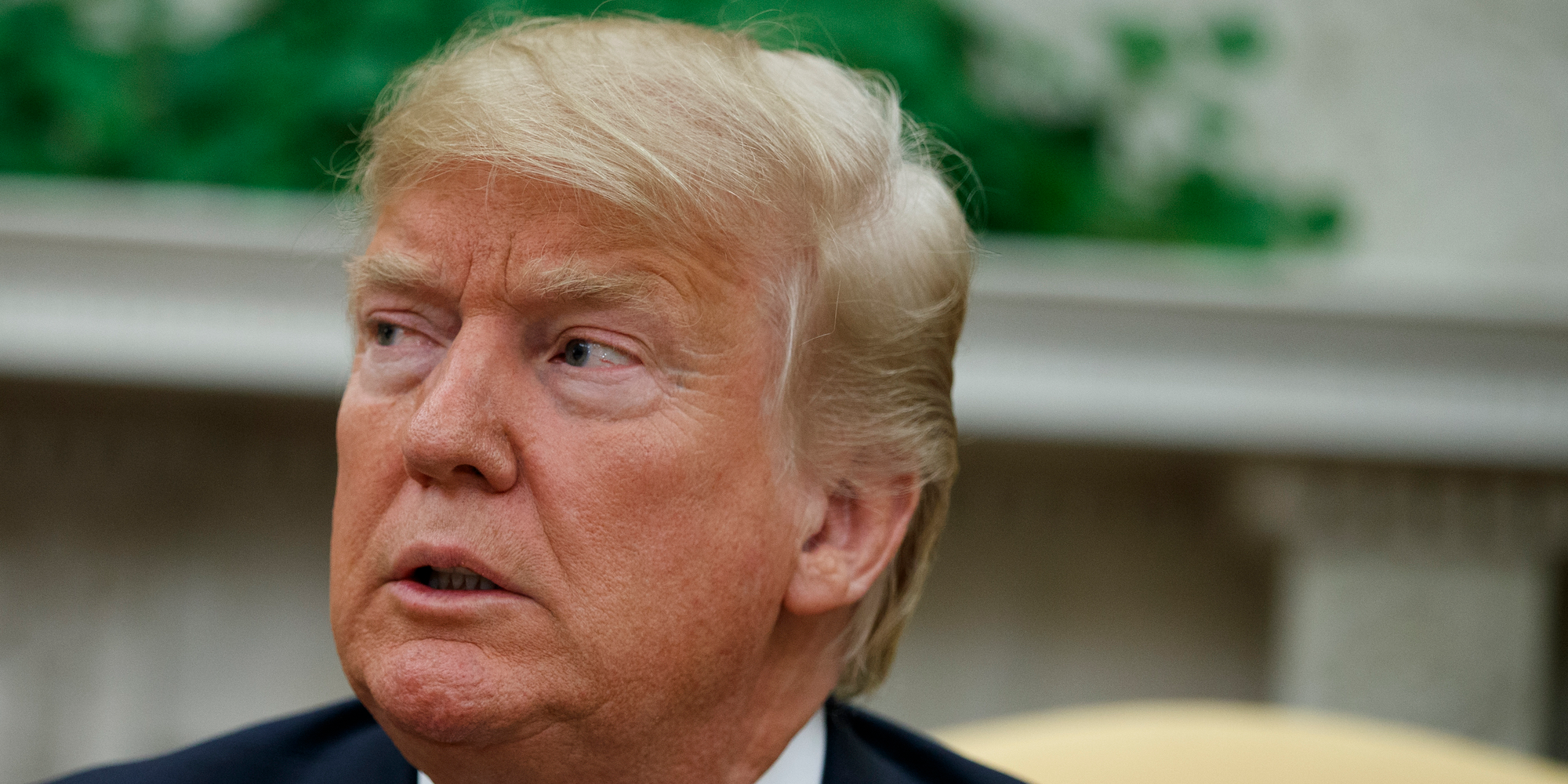- President Donald Trump said Friday that it’s “very sad” what special counsel Robert Mueller’s team has “done to Paul Manafort.”
- Manafort is currently facing trial for fraud in Virginia, and the jury began deliberating over a final verdict on Wednesday.
- Trump refused to rule out pardoning Manafort, a former top campaign aide, if he is found guilty.
- Legal experts say a potential pardon from Trump was likely a big part of why Manafort chose to go to trial instead of flipping.
Sign up for the latest Russia investigation updates here»
President Donald Trump on Friday again refused to rule out pardoning Paul Manafort, his former campaign chairman who is currently facing trial in Virginia.
Manafort has pleaded not guilty to 18 counts of tax fraud, bank fraud, and failure to report foreign bank accounts. The prosecution and defense wrapped up their closing arguments earlier this week, and the jury is currently deliberating over a final verdict.
“I think the whole Manafort trial is very said,” Trump told reporters on Friday before boarding Marine One. “I think that’s a very sad day for our country … I think it’s very sad what they’ve done to Paul Manafort.”
Manafort was indicted in Virginia as part of special counsel Robert Mueller's investigation into Russian interference in the 2016 presidential election, and whether members of the Trump campaign colluded with Moscow to tilt the race in his favor.
Manafort is also the defendant in a second indictment from Mueller's office, brought in Washington, DC, which charges him with conspiracy, obstruction, money laundering, and failure to register as a foreign agent.
He will face trial in the second indictment in September.
Trump has repeatedly defended Manafort while simultaneously distancing himself from his former campaign chairman.
"Paul Manafort worked for Ronald Reagan, Bob Dole and many other highly prominent and respected political leaders," Trump tweeted as Manafort's trial kicked off earlier this month. "He worked for me for a very short time. Why didn't government tell me that he was under investigation. These old charges have nothing to do with Collusion - a Hoax!"
He later added: "Looking back on history, who was treated worse, Alfonse Capone, legendary mob boss, killer and 'Public Enemy Number One,' or Paul Manafort, political operative & Reagan/Dole darling, now serving solitary confinement - although convicted of nothing? Where is the Russian Collusion?"
Trump's lawyer, Rudy Giuliani, said earlier that while the president would not issue pardons while the Russia probe is ongoing, he was open to pardoning people he believed had been treated unfairly once Mueller wraps up his investigation.
Manafort might have declined to flip on Trump because he thinks Trump will pardon him
Legal experts say a potential pardon from Trump was likely a big part of why Manafort chose to go to trial instead of flipping, like his former right-hand man, Rick Gates.
"Manafort maximizes his chances of getting a pardon by going to trial," said Alex Whiting, a former federal prosecutor in Boston and Washington, DC. "In his situation, given the facts of his case, the rational thing to do is plead guilty without cooperating and get the benefit of a guilty plea, or plead guilty and cooperate and get a bigger benefit. The only way it makes sense for him to go to trial is if he thinks he's going to get a pardon."
The New York Times reported in March that John Dowd, Trump's former lead defense attorney, floated the possibility of pardons to both Manafort and former national security adviser Michael Flynn last year, as the Russia probe was closing in on both men.
Whiting said that if such an offer was made - which Dowd denied - it could explain Manafort's willingness to face trial.
He added that this outcome is also the most beneficial to the president.
"If Trump pardons Manafort now, then Manafort can be subpoenaed to testify," he said. "And of course, if Manafort pleaded guilty, he may choose to cooperate. The pardon dangle encourages Manafort to hang tough, not cooperate, and reap the benefit later, maybe in a year or two."

